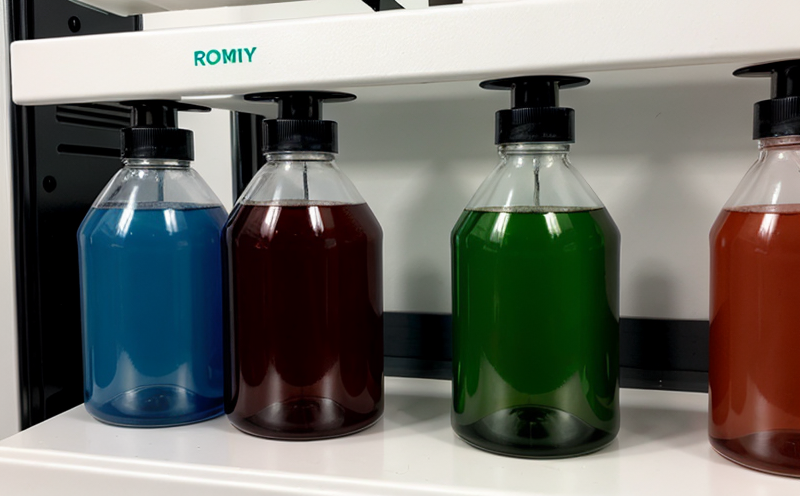DIN EN ISO 180 Impact Reactivity Testing of Plastics
The DIN EN ISO 180 impact reactivity test is a critical procedure that evaluates the susceptibility of plastics to decomposition or degradation under dynamic mechanical stress. This test method is widely used in quality management and compliance, particularly for polymer materials such as polyolefins, thermoplastics, and elastomers.
Impact reactivity testing is essential when ensuring the long-term stability and performance of plastic products exposed to various environmental conditions. The test simulates real-world scenarios where plastics might undergo mechanical stress due to external factors like temperature fluctuations or physical impacts. This method helps manufacturers identify potential weaknesses in their polymer formulations, enabling them to refine formulas for better resistance against degradation.
The procedure involves subjecting a specified type of plastic sample to controlled impact forces over a defined temperature range. The goal is to assess the material's reactivity under these conditions by measuring changes in physical properties like mass loss or chemical composition shifts. Compliance with this standard ensures that products meet stringent regulatory requirements, thereby protecting end-users from safety hazards associated with unstable materials.
Our laboratory adheres strictly to DIN EN ISO 180 protocols, ensuring accurate and reliable test results. We employ state-of-the-art equipment and highly skilled technicians who understand the nuances of this complex testing process. Our comprehensive approach guarantees that every aspect—from sample preparation to final reporting—is executed with precision.
The importance of impact reactivity testing cannot be overstated, especially in industries where product longevity is paramount. By conducting thorough tests according to DIN EN ISO 180 standards, we help clients maintain high-quality standards and comply with international regulations. This service not only enhances the reputation of our clients but also contributes significantly towards sustainable practices by promoting durable materials.
Our expertise in this area allows us to offer valuable insights beyond mere compliance. We can provide detailed reports on how specific additives or processing techniques affect a polymer's reactivity, helping R&D teams make informed decisions about material selection and formulation adjustments. Furthermore, our rigorous testing procedures ensure that all results are repeatable and reproducible, adding credibility to any claims made regarding product performance.
In summary, DIN EN ISO 180 impact reactivity testing is more than just a compliance requirement; it's an integral part of ensuring lasting quality in plastic products. Through meticulous execution and adherence to international standards, we contribute to safer, more sustainable manufacturing processes across various sectors.
Eurolab Advantages
At Eurolab, our commitment to excellence shines through in several key areas:
- State-of-the-Art Facilities: Our laboratories are equipped with the latest technology and instrumentation designed specifically for polymer testing.
- Experienced Technicians: Our team comprises highly qualified professionals who possess extensive experience in conducting impact reactivity tests according to DIN EN ISO 180 standards.
- Comprehensive Services: Beyond just compliance, we offer detailed analysis and expert advice based on our findings.
- Rapid Turnaround Times: We understand the importance of timely results in fast-paced industries; hence, we strive to deliver reports quickly without compromising accuracy.
- Cost-Effective Solutions: Despite offering premium services, Eurolab ensures that costs remain competitive for our clients.
Why Choose This Test
Choosing DIN EN ISO 180 impact reactivity testing offers numerous benefits to companies involved in the production and manufacturing of plastic products. Here are some compelling reasons why you should consider this service:
- Better Product Quality: By identifying potential issues early on, you can improve product quality and extend its useful life.
- Regulatory Compliance: Ensuring your products meet international standards helps avoid costly penalties and maintains a positive brand image.
- Competitive Edge: Demonstrating superior performance through rigorous testing gives you an edge over competitors in the market.
- Sustainability Initiatives: Promoting durability enhances sustainability efforts, contributing positively to environmental conservation.
- Innovation Support: Detailed analytical reports facilitate continuous improvement and innovation within your R&D department.
Environmental and Sustainability Contributions
The environment plays a crucial role in the lifecycle of plastic products. By utilizing DIN EN ISO 180 impact reactivity testing, manufacturers can contribute to environmental protection by:
- Reducing Waste: Longer-lasting materials mean less frequent replacements and reduced waste generation.
- Eco-Friendly Products: Ensuring product stability reduces instances of premature degradation leading to litter or pollution.
- Sustainable Supply Chain: Partnering with suppliers who adhere to these stringent standards helps maintain a sustainable supply chain.





